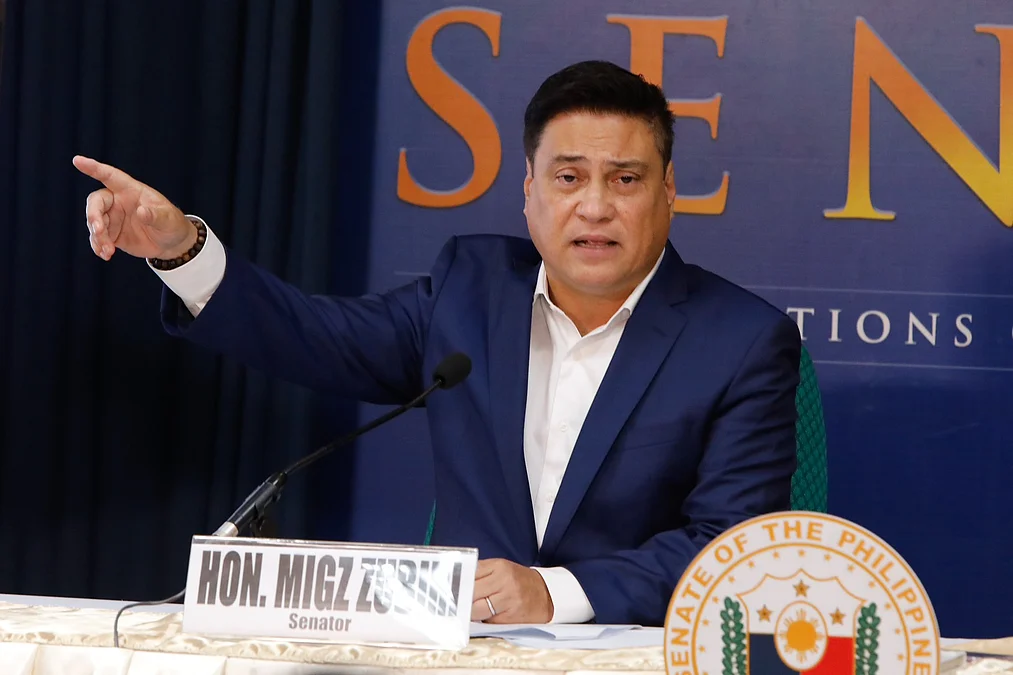By Lade Jean Kabagani
Copyright tribune

Senate Majority Leader Juan Miguel “Migz” Zubiri on Tuesday called for urgent reforms to rein in abusive online lending practices, blasting the lack of interest rate caps and pushing for regulatory authority to be transferred from the Securities and Exchange Commission (SEC) to the Bangko Sentral ng Pilipinas (BSP). Speaking during a Senate Committee on Games and Amusement hearing, Zubiri raised alarm over the absence of laws or regulations limiting interest rates charged by online lending applications, many of which reportedly impose excessive weekly rates without proper transparency. “Ibig mong sabihin wala po tayong cap? So kung meron po kayong lending app application, na-grant po, pwede po silang magcharge up to 20% a week? Wala po pala tayong batas para po diyan? (You mean to say we don’t have a cap? So if someone has a lending app that’s been granted a license, they can charge up to 20% interest per week? We really don’t have a law for that?),” Zubiri asked SEC lawyer Romarie Abrazaldo, who confirmed that the Usury Law has been suspended with no existing replacement. “Unfortunately, your Honor, yes po,” Abrazaldo told Zubiri. The senator aired his frustration with the regulator’s admission, comparing the unchecked lending rates to “mafia” and “Yakuza” practices, especially given how ordinary Filipinos, particularly minimum wage earners, are often unaware of hidden contract terms. “Mas grabe pa sa Mafia ito, sa Yakuza…Ang problema, maraming kababayan natin… hindi naiintindihan ang fine print ng kontrata (This is even worse than the Mafia, than the Yakuza… The problem is, many of our fellow Filipinos don’t understand the fine print of the contract),” Zubiri said. “Tapos kung di ka pa makabayad, grabe yung papahiyain ka. At tatanungin ko din sa Privacy Commission and other government agencies: pwede bang gawin yun na papahiyain yung tao? Kasi, as part of your loan agreement with the lending app, magbibigay ka ng sampung tao hangang dalawampung tao pati celfone nila. (And if you fail to pay, they’ll go as far as publicly shaming you. I’ll also ask the Privacy Commission and other government agencies: is it even legal to do that—to humiliate someone like that? Because as part of the loan agreement with these lending apps, you’re required to provide the names and phone numbers of 10 to 20 people). It’s a shame campaign,” he further lamented. Zubiri also condemned the common practice of online lenders requiring borrowers to submit contacts of 10 to 20 people, which are then used to shame or harass them when they fail to pay on time. He vowed to seek clarification from the National Privacy Commission on whether this violates data privacy laws. Referring to a 2024 Supreme Court ruling that labeled a 3% monthly interest rate as “unconscionable,” Zubiri questioned why online lending platforms are still allowed to charge far more, with no administrative mechanism in place for borrowers to seek relief—only the courts. “What you’re trying to tell me, as the regulator, is that there’s nothing we can do anymore? It’s like with corruption—should we just drop the mic and go steal? There’s really nothing we can do?,” he said. Zubiri also criticized the SEC for permitting firms that engage in such abusive practices and urged an immediate audit of licensed online lenders. He warned that while the agency delays action, Filipinos are suffering. “Every time you spend studying it, there’s a person hanging himself from the ceiling. Because of these abusive online lending apps … maybe you should do a review, an audit, sa mga kumpanyang ito na binigyan nyo ng permit (to these companies you’ve given permits),” he lamented. Before the exchange, Zubiri had already made a strong case for transferring regulatory authority over lending platforms from the SEC to the Bangko Sentral ng Pilipinas (BSP), citing his experience as former chair of the Senate Cooperatives Committee. He highlighted the BSP’s track record of strict but effective regulation, noting that while cooperative banks often complain about the central bank’s rigorous requirements, they ultimately benefit from the financial discipline those rules instill. “The BSP is probably one of the best-run branches of government,” Zubiri said. The senator vowed to pursue legislative action to ensure that online borrowers are protected from predatory lending, harassment, and unregulated interest rates by starting with a review of the current regulatory framework and the filing of appropriate legislation.



